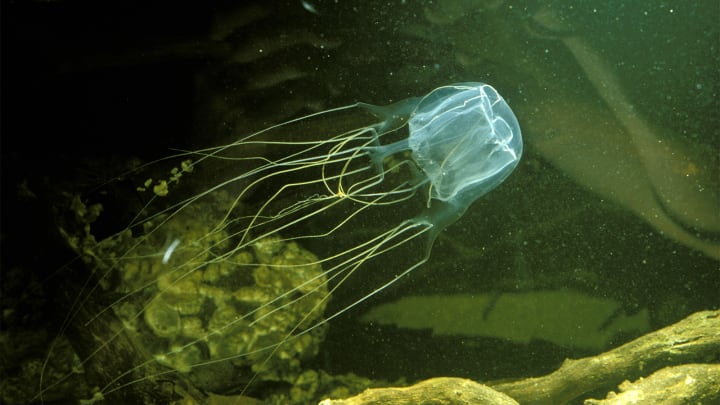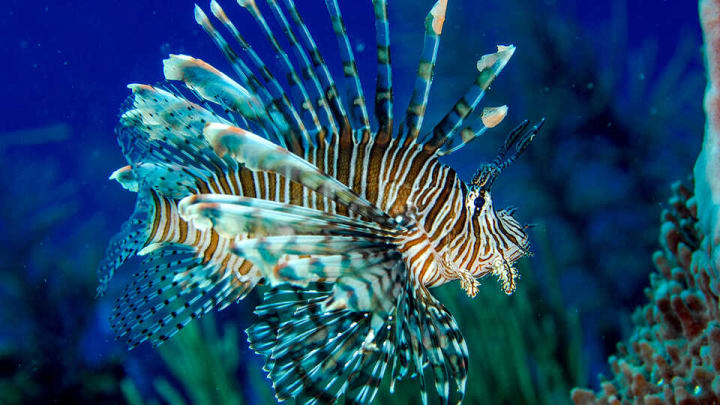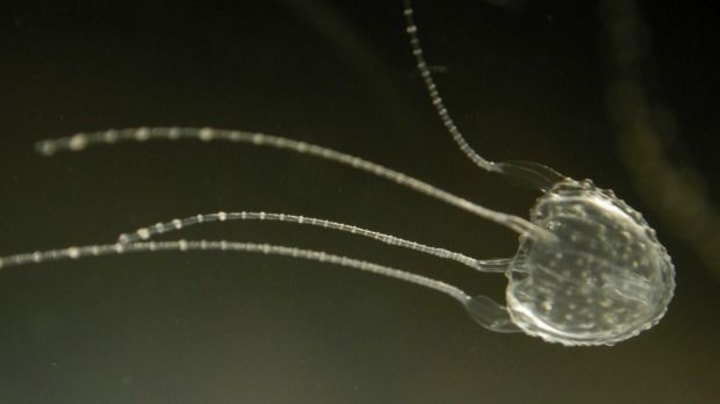
The ocean is a vast and mysterious place, home to countless species of creatures, many of which are not only fascinating but also deadly. While the ocean is full of beauty and wonder, it is also full of danger. Here are some of the most deadly sea creatures that you don't want to go near.

Box Jellyfish: Found in the warm waters of the Pacific and Indian Oceans, the box jellyfish has venomous tentacles that can cause heart failure and death in just a few minutes. Its venom can also cause severe pain, paralysis, and skin burns.

Stonefish: Found in the shallow waters of the Pacific and Indian Oceans, the stonefish is one of the most venomous fish in the world. Its venomous spines can cause severe pain, swelling, and even death if not treated quickly.

Blue-ringed Octopus: Found in the Pacific and Indian Oceans, the blue-ringed octopus has venomous bites that can cause paralysis and death in just a few minutes. Its venom can also cause vision loss, muscle weakness, and difficulty breathing.

Cone Snail: Found in tropical waters, the cone snail has venomous harpoons that can cause severe pain, paralysis, and even death. Its venom can also cause muscle weakness, vision loss, and difficulty breathing.

Lionfish: Found in the Atlantic, Mediterranean, and Caribbean, the lionfish has venomous spines that can cause severe pain, swelling, and even death if not treated quickly. Its venom can also cause muscle weakness and difficulty breathing.

Irukandji Jellyfish: Found in the waters of Australia and Southeast Asia, the Irukandji jellyfish has venomous tentacles that can cause severe pain, muscle cramps, and even death if not treated quickly.

Great White Shark: Found in the coastal waters of most countries, the Great White Shark is considered one of the most dangerous animals in the sea. Its powerful jaws and sharp teeth can cause serious injury or death.

Pufferfish: Found in tropical waters, the pufferfish has a highly toxic liver and ovaries that can cause paralysis, muscle weakness, and even death if not prepared properly by a trained chef.
These are just a few examples of the many deadly sea creatures that inhabit the ocean. It's important to remember that the ocean is a wild and unpredictable place, and it's always best to respect and admire these creatures from a safe distance. If you're planning on swimming or diving in unfamiliar waters, it's essential to be aware of the potential hazards and to take necessary precautions.
Another deadly sea creature that should be avoided is the Portuguese man o' war. Found in the warm waters of the Atlantic, Indian and Pacific Ocean, it has venomous tentacles that can cause severe pain, muscle cramps and even death. Its venom can also cause skin burns, breathing difficulties and heart failure. It's important to note that, even though it is commonly referred to as a jellyfish, it is actually a colony of individual organisms that work together.
Another sea creature to be aware of is the Sea Snake. Found in the tropical waters of the Pacific and Indian Oceans, Sea Snakes are considered some of the most venomous snakes in the world. Their venom can cause paralysis, muscle weakness and even death if not treated quickly. They are known to be aggressive and territorial, so it is best to avoid them when swimming or diving in their habitat.
Lastly, it's important to mention that even though some sea creatures are deadly, they are also an important part of the ocean's ecosystem. They play a vital role in maintaining a balance in the ocean. It's important to respect and protect them, and avoid activities that may harm them or their habitats.
In conclusion, the ocean is a vast and mysterious place, home to countless species of creatures, many of which are not only fascinating but also deadly. It's important be aware of the potential hazards and to take necessary precautions when swimming or diving in unfamiliar waters. It's also important to respect and protect these creatures and avoid activities that may harm them or their habitats. Remember that the ocean is a wild and unpredictable place, and it's always best to admire and appreciate these creatures from a safe distance. It's important to educate ourselves about these creatures and their habitats so that we can better understand and appreciate the ocean and the animals that live there.
About the Creator
Sukuna
Hii There






Comments
There are no comments for this story
Be the first to respond and start the conversation.